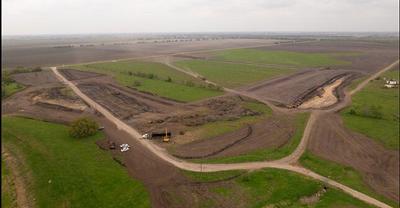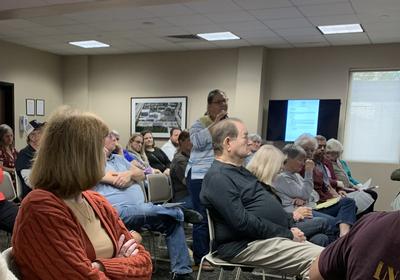- Sections :
- Crime & Public Safety
- Restaurants & Food
- Sports
- More
HHS Reminds Texans to Get Screened for Colorectal Cancer

AUSTIN, TX – Texas Health and Human Services encourages people to talk with their physician about colorectal cancer screening and whether they may be at risk.
March is National Colorectal Cancer Awareness Month. Among cancers that affect both men and women, colorectal cancer is the second-leading cause of cancer deaths in the United States, according to the Centers for Disease Control and Prevention.
In Texas, it is estimated that 11,533 people will be newly diagnosed and 4,242 will die from colorectal cancer in 2019, according to data from the Texas Department of State Health Services. The Texas HHS system works to increase awareness of risk factors and screening test options and help Texans access important screenings.
“We want to improve Texas outcomes, and we can,” HHS Executive Commissioner Dr. Courtney N. Phillips said. “Raising awareness of the importance of making healthy choices and screening for colorectal cancer is key, and we’re continuing to support programs that help fight cancer in our state.”
FAST FACTS:
- Colorectal cancer is the fourth most common cancer in the U.S. and Texas.
- In Texas, 3,697 people died from colorectal cancer in 2015.
- Colorectal cancer deaths were more common among men, and more common among black residents than white or Hispanic residents.
- Hospital charges for colorectal cancer hospitalizations in Texas in 2015 totaled approximately $790 million.
- People 50 to 75 years old should be screened for colorectal cancer regularly, according to the CDC. People younger than 50 who think they may be at risk and people older than 75 should ask a doctor if they should be screened.
In Texas, nearly 4,000 Medicaid beneficiaries received acute care services for colorectal cancer in fiscal year 2016. Texas Medicaid covers certain colorectal cancer screenings, and genetic testing for colorectal cancer may be provided to Medicaid clients who have a known predisposition. Texas Medicaid also covers standard FDA-approved treatments for beneficiaries after a cancer diagnosis.
The DSHS Comprehensive Cancer Control Program is funded by the CDC to fight cancer in Texas. The program’s goals include coordinating cancer-related efforts and promoting, prioritizing and implementing the Texas Cancer Plan, which is the state’s plan for cancer research, prevention and control.
“Recommended screening and follow up save lives,” said Dr. John Hellerstedt, DSHS commissioner. “Colonoscopies are quick and painless. They can identify and eliminate some growths before they become cancerous or catch cancer early when it may still be treatable without chemotherapy, radiation or major surgery.”
DSHS works with local health departments who have identified clinics to implement evidence-based interventions to increase colorectal cancer screening, including assessments of health systems’ current colorectal screening practices and capacity for improvement. DSHS partners with the Wichita Falls-Wichita County Public Health District.
“It’s a top priority of Wichita Falls-Wichita County Public Health District to encourage Wichita County residents to be proactive about their health by undergoing screenings for colorectal cancer and to ensure everyone is aware of the early warning signs of the disease,” said Lou Kreidler, Director of Health at Wichita Falls-Wichita County Public Health District.
Wichita Falls saw a 68 percent increase in colonoscopies after implementing patient reminder systems and a social and mass media campaign through its partnership with DSHS.

















